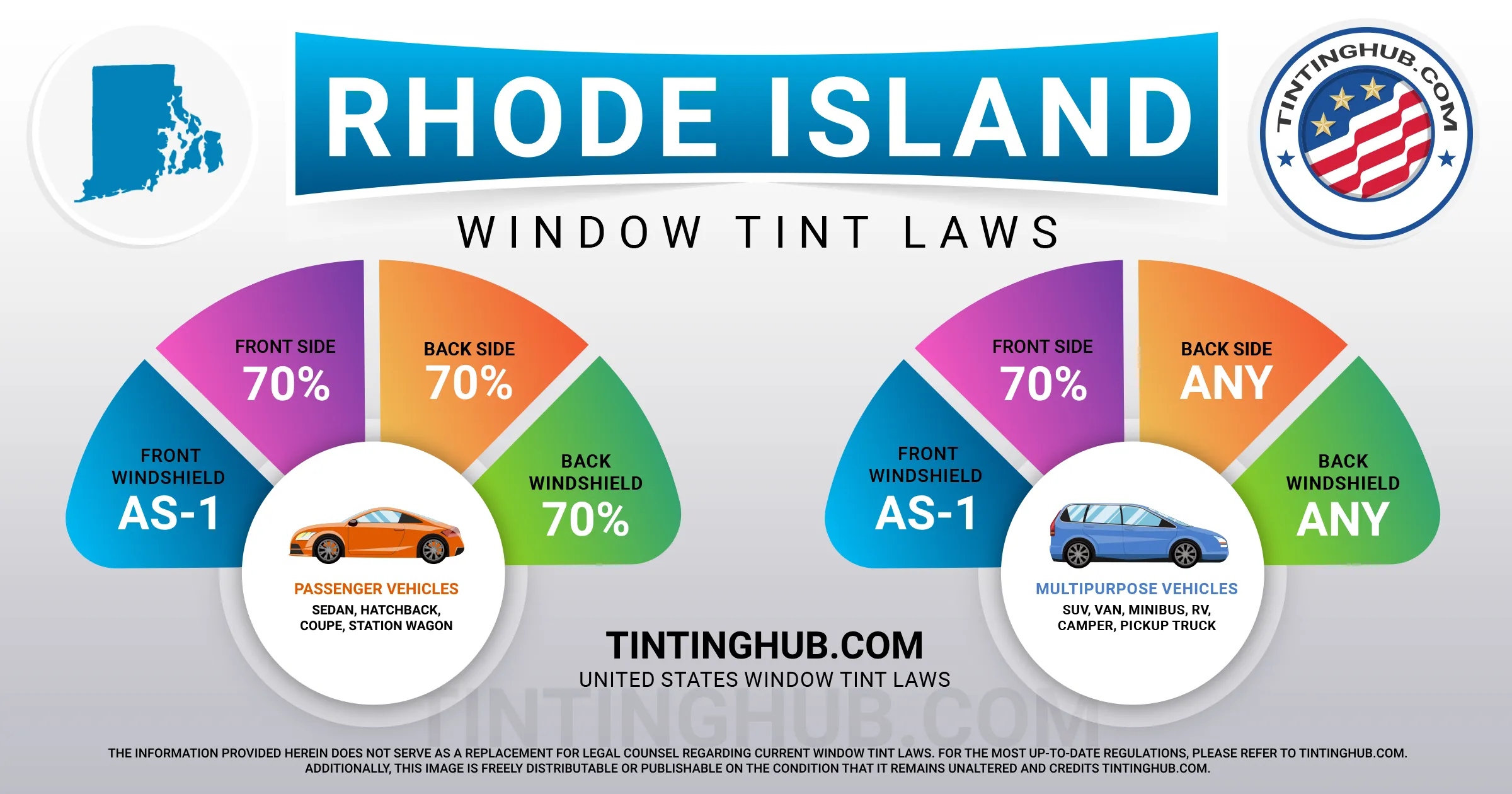Blog
Rhode Island Window Tint Laws (Last Update 2024)

Car window tinting is subject to specific laws and guidelines in Rhode Island. These regulations, implemented in 2000, aim to ensure the safe use of window tint on vehicles. In this article, we will provide you with a comprehensive overview of Rhode Island’s car window tinting laws, covering issues such as permissible darkness, reflection, and additional regulations you need to be aware of.

Understanding Window Tint Darkness in Rhode Island
In Rhode Island, the allowable VLT percentages differ for sedan cars and SUVs or vans, measuring the darkness of window tint by the percentage of visible light it allows through. This is known as Visible Light Transmission (VLT).
Tint Darkness for Sedans
For sedan cars, the regulations are as follows:
- Windshield: Non-reflective tint is allowed above the manufacturer’s AS-1 line.
- Front Side Windows: These windows must permit more than 70% of light to pass through.
- Back Side Windows: The back side windows must also allow more than 70% of light to pass through.
- Rear Window: Similar to side windows, the rear window must allow more than 70% of light to pass through.
Tint Darkness for SUVs and Vans
SUVs and vans have slightly different regulations:
- Windshield: Non-reflective tint is allowed above the manufacturer’s AS-1 line.
- Front Side Windows: These windows must permit more than 70% of light to pass through.
- Back Side Windows: There are no specific regulations for darkness, allowing more flexibility.
- Rear Window: Similar to back side windows, the rear window also has no specific restrictions on darkness.
Window Tint Reflection in Rhode Island
Window tint can serve the purpose of reflecting incoming light, reducing glare and heat. Rhode Island’s laws allow a certain level of reflection when using window tint.
Tint Reflection for Sedans
For sedans, the law does not specify any restrictions on window tint reflection for front side or back side windows.
Tint Reflection for SUVs and Vans
Similarly, for SUVs and vans, there are no specific regulations regarding reflection for front side or back side windows.
Additional Rhode Island Window Tint Regulations
Apart from darkness and reflection, there are other important laws and regulations that pertain to window tinting in Rhode Island:
- Side Mirrors: There are no restrictions regarding side mirrors.
- Restricted Colors: All window tint colors are allowed, providing you with a wide range of options.
- Certificates: Film manufacturers are not required to certify the film they sell in Rhode Island.
- Stickers: The law does not require any stickers to identify legal tinting.
- Medical Exceptions: Rhode Island provides medical exemptions for special tint. If you believe you qualify for a medical exemption, consult your state law for specific terms.
- Penalties: Violating window tint regulations can result in penalties of up to $250 per offense (§ 31-23.3-5).
Please keep in mind that the interpretation of Rhode Island tinting laws and regulations may vary by county or place of residence. Therefore, it’s advisable to verify the information with your local DMV or law enforcement authorities to ensure compliance.
We last updated our information about window tint laws in Rhode Island in 2023. If you come across any outdated or incorrect information, please don’t hesitate to contact us so we can make the necessary updates. We take pride in being a trusted industry leader in providing accurate and up-to-date window tint laws for Rhode Island.